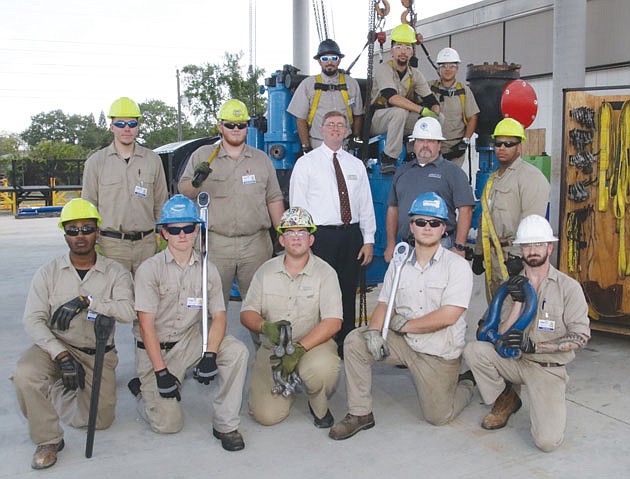When recently retired CEO David Branton of Cape Coral-based Turbine Generator Maintenance thought about his four-decade career, one accomplishment stood out: a partnership with Fort Myers Technical College to build a program to fulfill the needs of his workforce.
TGM specializes in repairing and maintaining steam and gas turbines for utilities, mining companies and agribusinesses. Like many executives in manufacturing and the trades, Branton knew that to grow quickly, he needed a top-notch workforce. “Back in the steel mill days, there was a huge technical college mechanical training program,” says Branton, “but over the years it's gone away with computers.”
Branton reached out to FMTC in 2010, but found nothing that fit. So he and Bill McCormick, then the school's program director, created a program. For qualifying graduates, TGM could offer a starting rate of $20 an hour, the ability to travel overseas and long periods off during off-peak seasons. With overtime opportunities, TGM technicians could make salaries of $60,000 to $100,000 a year.
Branton and McCormick overcame a series of challenges — from creating the curriculum to finding an instructor to getting the right equipment — to build a successful program. Their experience in doing it from scratch is now a model example, and a road map, for other companies and communities seeking a similar workforce boost.
The course, and the graduates it provided, also keyed a big increase in sales at TGM, says Branton. Annual revenue increased 77% from 2009 to 2014, from $18 million to
$32 million.
The primary challenge in launching the program: Branton and McCormick started without any formal educational framework. “We were opening up not only a brand-new program at our school, but we had to write a curriculum and a training plan for it — and it didn't exist anywhere else in Florida,” says McCormick. “The industry itself is heavily dependent on highly skilled, serious-minded technicians.”
Students would need to develop an acute understanding of the massive precision equipment, including tolerances within 1,000th of an inch. “So we had to set it up to be a first-rate quality program,” says McCormick.
The school and company reached out to other entities in the turbine industry for assistance. The final result is a 1,350-hour course that includes physics, electricity, electronics, hydraulic systems and assembly and reassembly of high-speed turbines and generators. The course is named Turbine Generator Maintenance, Inspection and Repair.
The course, which debuted in 2011, is the only one of its kind in Florida and the second nationwide. The class has attracted students from as far away as New York. The course also boasts a 100% student placement rate since 2014 for graduates. Branton notes the program is “not just a FMTC course but a certified Florida state course in which any college can adapt the curriculum.”
The course also offers a pay-it-forward twist: Each student must devise a way to improve the class before graduation. This has prompted innovations including the invention of several gadgets that aid in processes or installation; a system to organize tools; and a method to produce hard-to-come-by widgets using a laser printer.
Instructor Eric Seuffert also hones employability with resume writing and interview skills that have made graduates attractive to a variety of employers. That has led to other companies, even competitors, hiring away graduates from a program co-launched by TGM. Graduates take jobs in a number of areas within the turbine industry including paper mills, sugar plants, power plants, mines and waste energy plants.
“I considered it the ultimate compliment that someone else would want our guys,” says Branton.
Back at TGM, graduates receive more than just high paying jobs. They also have the opportunity to advance to project managers or technical directors, or use their lucrative earnings to seek a four-year degree and pay for it without debt. Says Branton: “That program was probably the highlight of my career, my most lasting contribution.”






